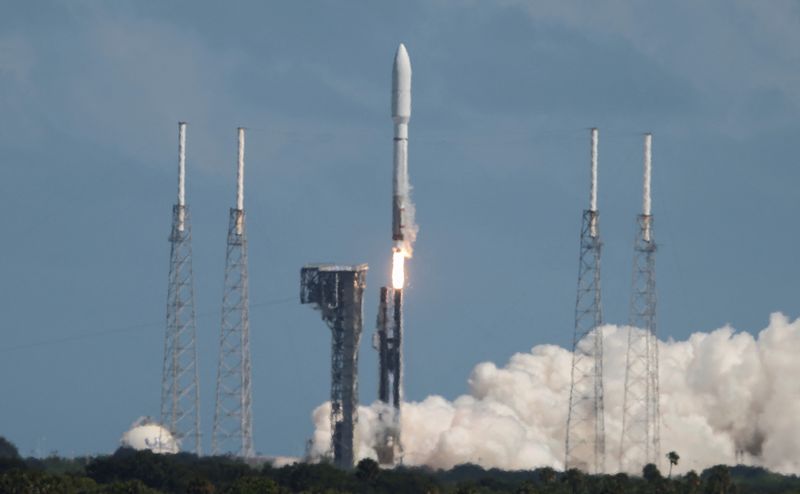TRENTON, NJ – New Jersey’s cable-based internet monopolies could be seeing some new competition in the near future.
Amazon took a significant leap in the space-based internet race, launching its first set of prototype satellites for the planned Kuiper internet network on Friday from Florida. The launch positions Amazon to compete directly with SpaceX’s Starlink broadband initiative.
The satellites were launched atop a United Launch Alliance Atlas 5 rocket, bearing the Amazon logo, from Cape Canaveral. This move comes ahead of Amazon’s ambitious plan to send 3,236 more satellites into orbit, aiming to offer global broadband internet—a goal SpaceX is also striving for with nearly 5,000 Starlink satellites already in space.
Although Amazon remained tight-lipped about the specifics of the two satellites manufactured at its Redmond, Washington facility, it later confirmed successful deployment and established contact with them post-launch.
With a commitment to invest $10 billion in its Kuiper project, which was first announced in 2019, Amazon has to meet the U.S. Federal Communications Commission’s mandate to deploy half of its planned satellite constellation by 2026. The potential market for broadband services from low-Earth orbit satellites is expected to be worth tens of billions in the coming decade.
While SpaceX’s Starlink positions them as the world’s leading satellite operator, Amazon will also face competition from Canada’s Telesat and French firm Eutelsat’s OneWeb.
Amazon is set to offer its Kuiper service to both individual and enterprise customers. Drawing from its vast experience, Amazon plans to manufacture consumer terminals at a company cost of $400 each. In contrast, SpaceX prices its Starlink terminals at $599.
To execute the deployment of the entire Kuiper network, Amazon has inked a deal for 83 launches, marking the most extensive commercial rocket procurement ever. The launch providers include Jeff Bezos’ own Blue Origin, ULA, and Europe’s Arianespace. However, a pending shareholder lawsuit challenges Amazon and Bezos over this launch agreement, alleging a lack of proper due diligence and neglecting potentially more economical options from SpaceX.
The rise of space-based broadband is becoming increasingly competitive, with major companies vying for dominance in this burgeoning sector.

